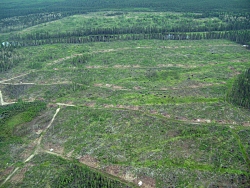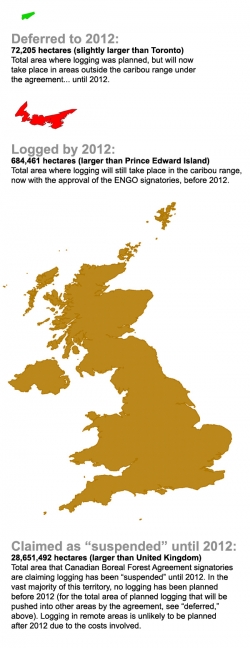Apr 18
20130
David Suzuki Foundation, Forest Ethics, Foundations, Greenpeace, Nature Conservancy, Non-Profit Industrial Complex
Boreal Canadian Boreal Initiative Canadian Parks and Wilderness Society Canopy CSR David Suzuki Foundation ForestEthics FPAC Greenpeace International Boreal Conservation Campaign Ivey Foundation Pew Environment Group The Nature Conservancy
Boreal Forest Agreement With Industry: Not One Hectare Of Forest Has Been Protected In Three Years
The Canadian Boreal Forest Agreement” (CBFA) was reached on 18 May 2010. Photograph: Richard Brooks/Greenpeace/EPA.
“Efforts to control corporations’ destructive impacts must have a critique of corporate power at their heart and a will to dismantle corporate power as their goal, otherwise they reinforce rather than challenge power structures, and undermine popular struggles for autonomy, democracy, human rights and environmental sustainability” – Corporate Watch [Britain] →






